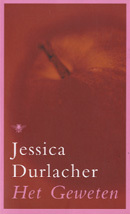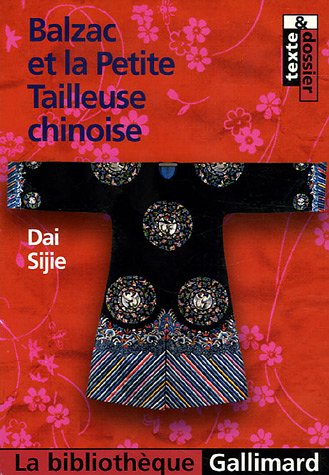Chang, Jung "Wild Swans: Three Daughters of China" - 1991
Jung Chang's grandmother was born at the beginning of the last century, when girls in China still had their feet bound. Her father gave her to a warlord as a concubine and she had Jung's mother. The mother was an active Communist and fell in love with a very important one with whom she had five children, Jung was the second. They go through all kinds of troubles in the China of Mao, from being high officials to being denounced, from being praised by everyone to being in prison. Nobody is allowed to chose any place in their lives, neither where they want to live nor what profession they want to do. So, when Jung gets the chance to study abroad, she takes it. In England, she writes this memoir of her youth, her parents' and grandparents life.
Apparently, this is the biggest grossing non-fiction paperback in publishing history. I am not surprised. Even more than a decade after it has been written and half a century after most of the events took place, this is still as actual today as it was back then.
Even though this looks like the story, the real story of a grandmother, mother and daughter, it really is a story of her family, the story of her people. Jung Chang manages to show what a lot of other fiction and non-fiction writers have not achieved, a true story of how people lived in Communist China, under Mao and his henchmen. "He was as evil as Hitler or Stalin, and did as much damage to mankind as they did," says the author. "And yet the world knows astonishingly little about him."
Yes, why do we know so little. At least 70 million people were killed, that is more than the population of most European countries. That is why this book is so important. To show us and future generations what people are able to do, atrocities you cannot even imagine, how did they come up with it? But not just the physical abusiveness was bad, the other aspects were even worse. I have read a lot about China but I knew nothing before. As so many others, I thought that intellectuals were sent to work in the countryside, next to the people who always lived and worked there. I had no idea that the impact was so bad, that you could go from being in the right position to being in the wrong position in no time whatsoever.
I was very sad about the family life people had - or better, didn't have. How they still managed to be so devoted to each other makes me admire them even more.
I admire the author's father who clung to his principles, there are few people like him on this earth, if we all were like that, we could live in peace. Everywhere.
This truly is an extraordinary book everybody should read.
Would love to read: "Mao: The Unknown Story" by the same author
Just a few of her quotes that spoke to me:
"The upshot of this horrible reality was that we were all obsessed with who came from what family, and often people would ask the question outright in their first conversation with you. But meeting people in London, I sensed none of this pressure. Everyone seemed to be extraordinarily equal, and could not care less about one's background." Unbelievable in our world nowadays.
"Louisa May Alcott's Little Women was the first novel I read in English. I found women writers like her, Jane Austen, and the Brontë sisters much easier to read than mal authors like Dickens, and I also felt more empathy with their characters." This was the same for me, it was one of the first novels I read in English, I do prefer women writers, most probably for the same reason.
And, about her father: "There was no place for him in Mao's China, because he had tried to be an honest man. He Had been betrayed by something to which he had given his whole life, and the betrayal had destroyed him."
There isn't really more to add.
From the back cover:
"The story of three generations in twentieth-century China that blends the intimacy of memoir and the panoramic sweep of eyewitness history - a bestselling classic in thirty languages with more than ten million copies sold around the world, now with a new introduction from the author.
An engrossing record of Mao’s impact on China, an unusual window on the female experience in the modern world, and an inspiring tale of courage and love, Jung Chang describes the extraordinary lives and experiences of her family members: her grandmother, a warlord’s concubine; her mother’s struggles as a young idealistic Communist; and her parents’ experience as members of the Communist elite and their ordeal during the Cultural Revolution. Chang was a Red Guard briefly at the age of fourteen, then worked as a peasant, a 'barefoot doctor,' a steelworker, and an electrician. As the story of each generation unfolds, Chang captures in gripping, moving - and ultimately uplifting - detail the cycles of violent drama visited on her own family and millions of others caught in the whirlwind of history."












